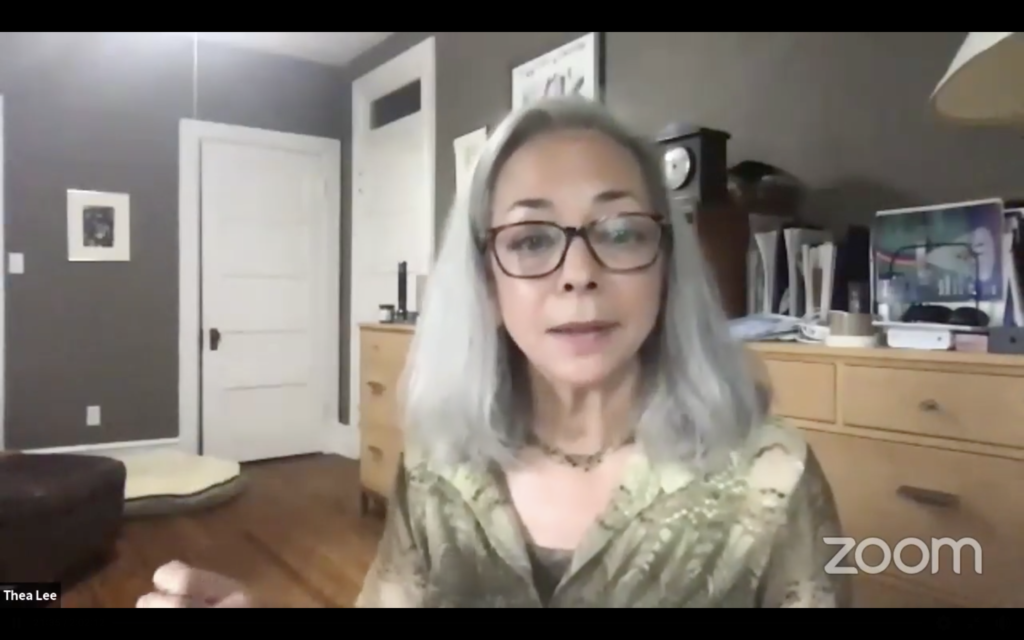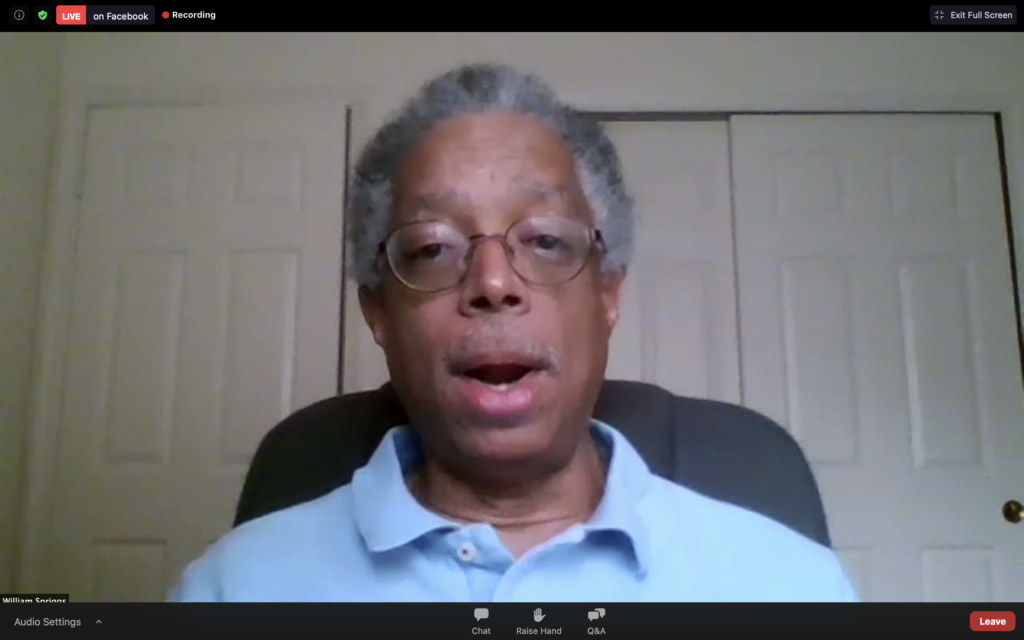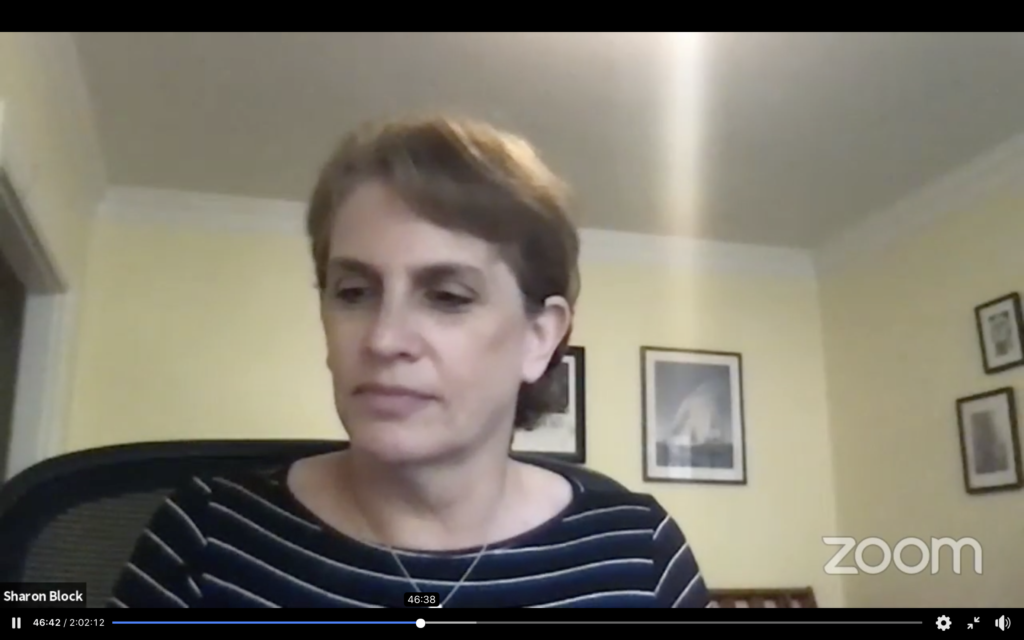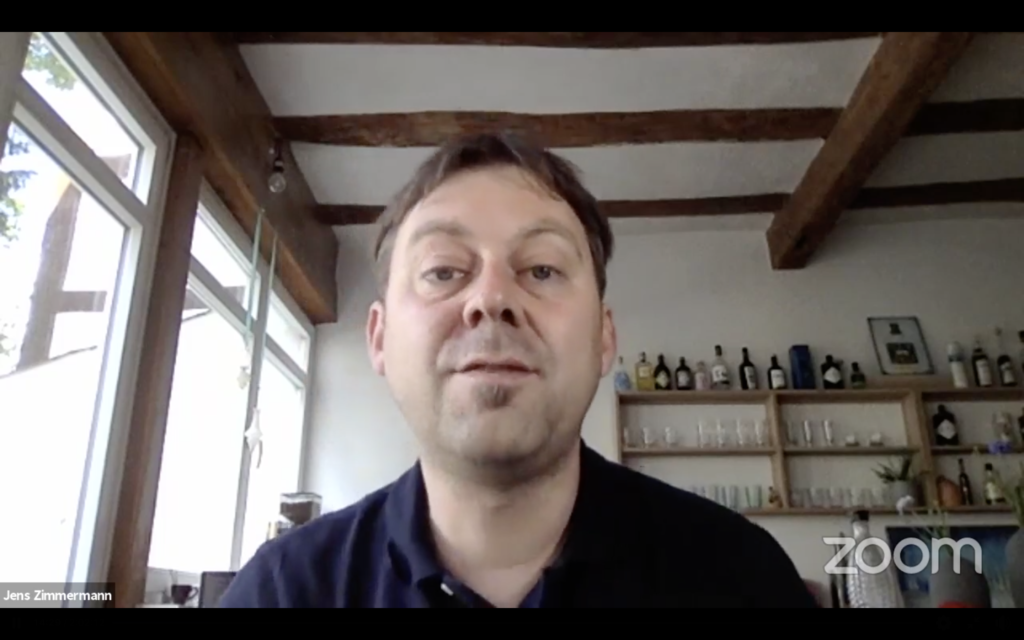Claudia Canales is a Junior at Georgetown University, majoring in Women’s and Gender Studies.
You can watch the event recording on Facebook.

Posted in Events
By Claudia Canales
The Kalmanovitz Initiative for Labor and the Working Poor at Georgetown University and the Friedrich-Ebert-Stiftung co-sponsored the webinar “A German-American Dialogue on Worker Rights and Welfare.” This July 7 panel was moderated by Lane Windham, Associate Director of the Kalmanovitz Initiative and co-director of WILL Empower.
Jens Zimmerman, member of the German Bundestag and the Social Democratic Party, said that in Germany, attention is now being focused on the economy after COVID-19 infection rates have been brought under control.things have calmed down on the COVID-19 front. Past developments, such as digitization, are speeding up as a result of the pandemic. CEOs are wondering how they can use working from home to their advantage, and the strong culture of being present at the workplace is being heavily debated. “The problem is until COVID-19, the economy was running smoothly, unemployment was very low, people felt extremely, economically speaking, safe,” said Zimmerman. He then pointed out that the pandemic has brought a new awareness in Germany that the economy needs some large changes to accommodate workers’ needs in the face of technological shifts. Millions of jobs will be lost, according to recent studies. In an effort to maintain purchasing power, Germany’s national budget will see a dent because of a very big economic stimulus and use, for the first time, of deficit financing. Zimmerman closed by noting that for the first time since WWII Germany will have a federal election without a standing chancellor running again for office.
Thea Lee, President of the Economic Policy Institute, expressed that this is a moment of choice and change for the whole world. “I think the right wing in the United States has been better at taking advantage of crisis than progressives have,” said Lee. “That is our challenge going forward into the next year.” Workers have had little agency and ability to protect themselves in the middle of a devastating economic crisis. Lee pointed out that the U.S. social safety net has become tattered as employers have become arrogant and greedy; workers have been systematically denied their ability to build the kind of organizations that can defend them. Lee advises us to use the trauma of the current moment to re-imagine our economy, our workplace, and our model of business at the national and global level.
“The US is dominated by people who believe in this God called the invisible hand,” says William Spriggs, Chief Economist of the AFL-CIO. Market forces cannot respond rapidly enough amidst the pandemic. Spriggs asserted that we need to be able to engage in social dialogue to reach a meaningful policy agreement. He pointed out that union workers fare better because at least they have a space in which social dialogue can happen. Spriggs pointed out that workers need a better safety net; though they have a right to collective bargaining, the U.S. has a very limited unemployment insurance system. Spriggs emphasized the potential for large change during the pandemic, and reminded the audience that there’s no guarantee that such change will be positive. “There’s a huge potential that we leave this crisis and we have Amazon, Target, and Walamart, and that’s it,” said Spriggs. He concluded by urging the audience to rethink the silent agreement to data monopolies and our relationship with our global value chains.
Sharon Block, Executive Director of the Labor and Worklife Program at Harvard University, spoke about the Clean Slate for Worker Power project. Labor law reform is necessary to address the economic and political inequality exacerbated by the weakening of labor unions. This project aims to empower all workers by enabling them to build collective organizations that can counter corporate power in the workplace, across enterprise and industries, at the corporate level, and within our political system. Giving workers a voice at work enables democratic values. Most workers are left without the protections of a union because the system makes it difficult to form one; workers either have exclusive representation, or no representation at all. Clean Slate instead suggests giving workers a menu of representational choices. Worker power would be expanded in corporate decision making by having workers as part of corporate boards in a meaningful way to ensure decisions are weighed fairly. “In order for labor law to succeed in this mission, it has to do a great deal more than what it does today in the U.S,” said Block.
A moderated discussion highlighted the divergent experiences for working-class people in the two countries in the pandemic’s wake. Zimmerman pointed out that in Germany, the usual worker has at least 12 months of unemployment payments which is comfortable compared to the 26 weeks U.S. workers normally receive. Germans were in disbelief when they saw videos of U.S. citizens driving to get food packages as they did not have the same experience. The unemployment rate is increasing in both Germany and the U.S., and corporations in Germany are managing to pay their workers without touching their funds. American workers, by contrast, lack certainty and the pandemic exposed that the nation’s unemployment insurance system is flawed. For example, a restaurant worker who works 30 hours per week wouldn’t qualify for insurance. Undocumented workers in the U.S. also have no protections. Germany saw inequity for workers in the meatpacking industry specifically, but also all people not able to work from home.
The also panel spotlighted housing issues; mass evictions are unknown in Germany, yet the U.S. panelists pointed out that such evictions are predicted for the end of the summer. People in positions of power in the U.S. did not and are not doing enough to protect its most vulnerable population, and it is obvious when taking a look at how other industrialized countries have handled the COVID-19 pandemic. “American politicians essentially pimp American workers. We get to do and get treated less by our own companies in our own country, and when other companies come to the United States, we get to be treated less than the workers in the home countries. Politicians think this is okay,” said Spriggs.
Claudia Canales is a Junior at Georgetown University, majoring in Women’s and Gender Studies.
You can watch the event recording on Facebook.



